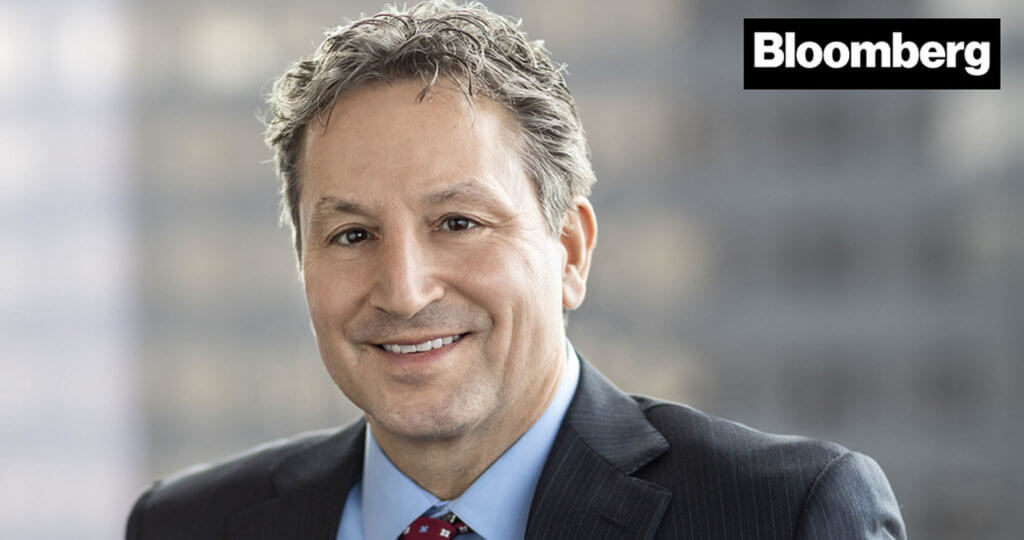Oakmark Global Fund - Investor Class
Average Annual Total Returns 06/30/11
Since Inception 08/04/99 11.34%
10-year 10.45%
5-year 4.70%
1-year 27.21%
3-month 0.00%
Gross Expense Ratio as of 09/30/10 was 1.15%
Past performance is no guarantee of future results. The performance data quoted represents past performance. Current performance may be lower or higher than the performance data quoted. The investment return and principal value vary so that an investor’s shares when redeemed may be worth more or less than the original cost. The performance of the Funds does not reflect the 2% redemption fee imposed on shares redeemed within 90 days of purchase. To obtain the most recent month-end performance data, view it here.
Quarter Review
During the quarter ended June 30, the stock market experienced considerable volatility, but in the end, prices leveled out. The Oakmark Global Fund ended the quarter unchanged, compared to a fractional gain for the MSCI World Index. The Lipper Global Fund Index had a fractional loss for the quarter. For the first six months of 2011, the Global Fund returned 2%, the MSCI World Index returned 5%, and the Lipper Global Fund Index returned 4%. Although our returns have never followed a smooth, straight line, we are pleased to report that the Fund’s compound annualized rate of return since inception is 11%.
The Fund’s investments in the United Kingdom, Germany and Ireland generated the largest positive returns in the quarter,while investments in Sweden, Japan and Switzerland lost the most money. The Fund’s five largest contributors to return were all U.S.-domiciled. MasterCard soared in the quarter for reasons that we discuss below. Live Nation’s share price rose in part because of takeover speculation. During the last week of the quarter, large-cap stocks achieved substantial gains — among them Intel. Snap-On continued to benefit from strong worldwide industrial activity, and management’s efforts to restructure Sara Lee boosted its share price.
Applied Materials (U.S.) led the list of detractors for the quarter due to its announcement of lowered earnings guidance. The share price of Equifax (U.S.) faltered, along with the entire banking industry, as it often serves as a proxy of sorts for that sector. ROHM and Hirose Electric (both Japan) suffered because of a strong yen, combined with the effects of the tragic earthquake and tsunami. Credit Suisse (Switzerland) also declined due to its national currency’s overvaluation. In addition, banking regulators are currently considering higher capital requirements, which appears to have diminished investor interest in financial stocks.
Portfolio Activity
Because the Oakmark Global Fund’s investors include both taxable and tax-exempt entities, we pay considerable attention to tax efficiency when circumstances allow. During the past quarter, we sold Cisco and used the proceeds to purchase shares of Texas Instruments (TI). We do not mean to suggest that these companies are interchangeable; clearly, routers (Cisco) are different products from analog semiconductors (Texas Instruments). Yet, even though these companies have divergent competitive positions and customer characteristics, both companies are U.S.-domiciled technology concerns that are often subject to similar stock-market influences. We chose to sell Cisco for tax-efficiency reasons, and also because we had a worthy replacement in TI, whose share price declined after it announced its acquisition of National Semiconductor. One great risk facing technology companies is obsolescence, and we believe that TI’s management team has historically shown considerable foresight in preparing for technological evolution. TI’s focus on analog has also enabled the company to avoid the most price-competitive semiconductor sectors.
Our second U.S.-domiciled purchase in the quarter was Tenet Healthcare. Tenet owns and manages hospitals and outpatient centers. A decade ago, the company suffered from too much debt and substandard profit margins. A new management team took over in the mid-2000s and worked to cure the company of its ills. As a result, their hospitals’ quality ratings have improved significantly. Unlike many other healthcare industry participants, Tenet may actually benefit from healthcare reform because more of its clients could become insured. Finally, we believe that Tenet’s subsidiary, Conifer, offers hidden value. Conifer provides revenue-cycle management, billing, insurance verification and other services to client hospitals. Conifer’s publicly traded competitors are highly valued, which underscores how important we think this subsidiary is for our investment in Tenet.
Rising commodity prices have once again given us the opportunity to invest in Nestlé (Switzerland). Recently, we have seen consumer-product companies, including Nestlé, experience share-price declines because investors may be worried that the inflationary trends in commodities could prevent these companies from maintaining their profit margins. We believe, however, that Nestlé’s management can raise prices, as it has done in the past, and gradually pass on inflated commodity prices to consumers. We are very familiar with Nestlé as an investment opportunity because it has been on our approved list for most of the past 14 years. In our view, it is arguably the best global food franchise and it is run by a first-class management team. Sales have grown over 6% per annum, and operating margins have continued to increase. Since 2003, management has reduced the number of outstanding shares by over 20%, and another repurchase plan is in the works. Since 2006, more than every dollar generated in free cash flow has been returned to shareholders. Nestlé truly fits our definition of a shareholder-oriented company.
Finally, we sold the remainder of our holding in Richemont, the Swiss luxury-goods company, as it became relatively less attractive versus other alternatives.
MasterCard Redux
Six months ago, we wrote about our opinion of MasterCard, noting that its share price had declined after “the Federal Reserve proposed new regulations that would limit the fees debit-card-issuing banks may charge merchants for transactions.” At that time, we argued that MasterCard’s depressed share price already reflected the souring economic conditions facing debit cards. On June 29 the Federal Reserve issued its final debit interchange rules, and they appear to be much less onerous than had been feared. This announcement spurred an 11% leap in MasterCard’s share price. As we often note, value investors attempt to position their portfolios to be lucky, and we do this by attempting to invest in a position when the stock price already reflects bad news. MasterCard’s share price move suggests that we may have succeeded in this instance.
Global Diversification
Geographically, our portfolio weightings have remained about the same over the quarter with the U.S. representing approximately 41% of investments and Europe representing approximately 33%. The majority of the balance excluding cash is invested in the Pacific Rim.
Currency Hedges
Because of the U.S. dollar’s continued weakness relative to other global currencies, we added to existing hedge positions and initiated a hedge for part of the Fund’s euro exposure. Approximately 69% of the Fund’s Swiss franc, 67% of the Australian dollar, 51% of the Japanese yen, 29% of the Swedish krona and 21% of the euro exposures were hedged at quarter-end.
Our hedge contracts have been a drag on performance for the year. The Fund would have shown a 1% return for the June quarter but for the hedge losses. However, we continue to view these currencies as very overvalued based on purchasing-power parity. Therefore, we will continue to hold our hedge positions to offset the risks associated with owning overvalued foreign currencies.
Please feel free to contact us with your questions or comments. Thank you for being our partners in the Oakmark Global Fund.
As of 6/30/11, Mastercard, Inc., Class A represented 2.6%, Live Nation Entertainment, Inc. 1.7%, Intel Corp. 2.8%, Snap-On Inc. 5.0%, Sara Lee Corp. 2.0%, Applied Materials, Inc. 2.0%, Equifax Inc. 2.7%, ROHM Ltd. 2.6%, Hirose Electric Co., Ltd. 3.0%, Credit Suisse Group 3.0%, Oracle Corp. 4.4%, Laboratory Corp. of America Holdings 4.2%, Bulgari SpA 0%, Square Enix Holdings Co., Ltd. 3.8%, Cisco Systems, Inc. 0%, Texas Instruments Inc. 3.0%, National Semiconductor Corp 0%, Tenet Healthcare Corp 1.6%, Conifer Health Solutions 0%, Nestlé SA 1.1%, and Compagnie Financiere Richemont SA 0% of the Oakmark Global Fund’s total net assets. Portfolio holdings are subject to change without notice and are not intended as recommendations of individual stocks.
The MSCI World Index (Net) is a free float-adjusted market capitalization weighted index that is designed to measure the global equity market performance of developed markets. This benchmark calculates reinvested dividends net of withholding taxes using Luxembourg tax rates. This index is unmanaged and investors cannot invest directly in this index.
The Lipper Global Fund Index measures the performance of the 30 largest mutual funds that invest in securities throughout the world. This index is unmanaged and investors cannot invest directly in this index.
Investing in foreign securities presents risks that in some ways may be greater than in U.S. investments. Those risks include: currency fluctuation; different regulation, accounting standards, trading practices and levels of available information; generally higher transaction costs; and political risks.The discussion of the Funds’ investments and investment strategy (including current investment themes, the portfolio managers’ research and investment process, and portfolio characteristics) represents the Funds’ investments and the views of the portfolio managers and Harris Associates L.P., the Funds’ investment adviser, at the time of this letter, and are subject to change without notice.





